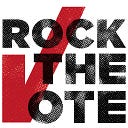
Why Local Elections Matter
By Melissa Wyatt
We’ve all been told to vote in our local elections.
But why? What makes them so important, and how do they actually affect our lives? And how do you even know when they’re happening? So many questions, so little time.
So let’s talk it through.
First, sign up for Rock the Vote’s election reminders and review our list of 2017 elections to make sure that you never miss a deadline and are ready for every Election Day.
We also get that learning about local candidates is way harder than in federal races. We’ve all stood in a voting booth with no idea who to choose for our local school board race (and may have even left some parts of the ballot blank).
Now, you can decide how to vote in these local races: this year, Rock the Vote will be piloting Municipal Voter Guides with local partners in cities across the US. We’ll be asking candidates questions on the issues that matter most to our generation, such as immigration, education, policing, jobs and climate change.
You’re welcome.

First stop: Los Angeles, for its March 7th election. Be sure to keep an eye out — Rock the Vote might come to your city next!
Now, let’s go over why local elections matter:
1. Local government manages a lot of different things — and their decisions will directly affect your life.
There is no level of government that is more directly responsible for serving your community than your local elected officials. Local government can affect almost every aspect of your daily life. Here’s just a few of the things they’re responsible for:
- Local school quality
- Deciding sanctuary jurisdiction status
- Policing and public safety (and holding police accountable)
- Rent costs and affordable housing
- Public transit
- Alcohol and marijuana ordinances
- City colleges and job training programs
. . . the list goes on and on, all the way down to your recycling options and collection.
To sum it up: your local government has a lot of money and influence to decide what your community’s priorities are and how it will be run.
2. State and local governments lead the way when the federal government isn’t.
For many of us, the 2016 election was a rough one. Like, really rough. More than any other voting bloc, our chosen candidates ultimately didn’t win. But there’s still a way to harness your passions and make a real difference, and that’s by getting involved in municipal elections.
Did you know that many landmark federal policies first originated at the local level? It’s true — local politics have a long history of shaping change in our country from the ground up. Policies such as women’s suffrage, minimum wage, environmental protection, and marriage equality all began at the local and state level.
By voting in local elections and holding your officials accountable, you can help create the change you want to see in our country. If nothing is moving forward at the federal level (or your federal representatives aren’t making progress in areas that you care about), it’s the responsibility of local governments to take action.

3. Your vote will make a difference.
Typically, just 1 in 5 voters participate in off-year local elections — meaning your vote at the local level can have an even bigger impact. For example, on just one election day in Ohio, 7 local issues were decided by just 1 vote.
Plus, if you do participate (and help your friends and family get to the polls, too), your elected officials will likely be more responsive to your needs and interests because you’re a voter. And if they aren’t, the next election is a a great way to fix that…
Again, make sure you never miss an election and are signed up for Rock the Vote’s Election Reminders. No matter where you live in the US, we’ll give you the information you need to participate in your local, state, and federal races. Also, make sure to check out our list of 2017 election dates to find out what’s happening in your area and across the country.
